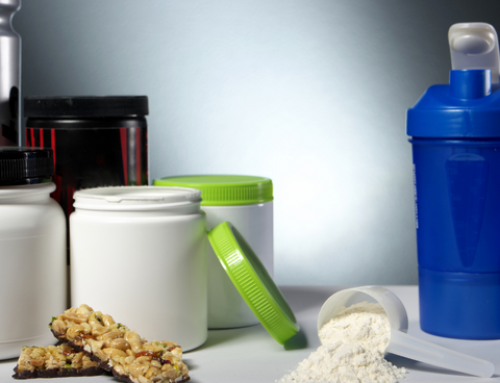Get the Most Out of Your Post-Workout Protein
For workout supplements many brands, nutrients and theories have come and gone except for the use of protein. Though common before, during or after a workout, protein consumption post-workout is most popular concept. (See The Value of Protein for Athletes.)
Understanding Protein
Protein can be found in many foods, and plenty of different types of sources can be utilized. In its whole form, protein is a combination of 20 amino acids, the building blocks of protein. Our muscles are made of these amino acids and need replenishment after we break them down during workouts, which is why supplementing with protein post-workout is so important. When we use protein as a post-workout supplement, it’s necessary to understand how its varied forms are absorbed in the body.
Important Steps
The first factor to consider with protein supplementation is what food sources work best for your body. Do you crave liquid, a small snack or whole food post-workout? (Protein and Your Diet) Regardless of what works best for you, there are ways to always get the best results with your supplementation. Because protein absorption rates differ, it’s important to note that the quicker you absorb protein post-workout, the better. Generally speaking, liquid absorbs quicker than solid food, with whey protein being the fastest form. Immediate absorption is not necessary, but since our bodies open a window of 30-45 minutes post-workout, it’s a good idea to use liquid protein if you waited a long time to ingest protein after your workout.
How Much?
The amount of protein that you take in is important. Taking in too much protein would have adverse effects on you. The latest research from www.pubmed.gov explains that taking in anything over two grams of protein per kilogram of body weight throughout the day does not benefit us, as previously expected. Instead, using 20-30 grams of protein post-workout and 1.0-1.7 grams per kilogram of body weight throughout the day is a safe bet. (Ask the Experts: How Much Protein Do I Need?)
Vegetarian Protein Suggestions
If you are a vegetarian or vegan and wish to use a non-dairy source of protein, you could either mix grains with rice or corn to accomplish a complete protein, or instead of animal protein use fish, soy, quinoa, amaranth, hemp or spelt. There are many vegetarian protein powders on the market for this reason.
RECOMMENDED FOR YOU
MOST POPULAR
Get the Most Out of Your Post-Workout Protein
For workout supplements many brands, nutrients and theories have come and gone except for the use of protein. Though common before, during or after a workout, protein consumption post-workout is most popular concept. (See The Value of Protein for Athletes.)
Understanding Protein
Protein can be found in many foods, and plenty of different types of sources can be utilized. In its whole form, protein is a combination of 20 amino acids, the building blocks of protein. Our muscles are made of these amino acids and need replenishment after we break them down during workouts, which is why supplementing with protein post-workout is so important. When we use protein as a post-workout supplement, it’s necessary to understand how its varied forms are absorbed in the body.
Important Steps
The first factor to consider with protein supplementation is what food sources work best for your body. Do you crave liquid, a small snack or whole food post-workout? (Protein and Your Diet) Regardless of what works best for you, there are ways to always get the best results with your supplementation. Because protein absorption rates differ, it’s important to note that the quicker you absorb protein post-workout, the better. Generally speaking, liquid absorbs quicker than solid food, with whey protein being the fastest form. Immediate absorption is not necessary, but since our bodies open a window of 30-45 minutes post-workout, it’s a good idea to use liquid protein if you waited a long time to ingest protein after your workout.
How Much?
The amount of protein that you take in is important. Taking in too much protein would have adverse effects on you. The latest research from www.pubmed.gov explains that taking in anything over two grams of protein per kilogram of body weight throughout the day does not benefit us, as previously expected. Instead, using 20-30 grams of protein post-workout and 1.0-1.7 grams per kilogram of body weight throughout the day is a safe bet. (Ask the Experts: How Much Protein Do I Need?)
Vegetarian Protein Suggestions
If you are a vegetarian or vegan and wish to use a non-dairy source of protein, you could either mix grains with rice or corn to accomplish a complete protein, or instead of animal protein use fish, soy, quinoa, amaranth, hemp or spelt. There are many vegetarian protein powders on the market for this reason.











